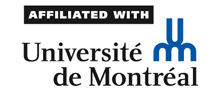Camille Bedock (University of Brussels), Damien Bol (King’s College London), Thomas Ehrhard (University of Paris II)
What is the story?
When politicians or public officials consider changing the electoral system, they often seek advice from political scientists. The APSA Task Force on Political Science, Electoral Rules and Democratic Governance conducted a survey on the topic. In their follow-up report, the authors note that more than 50 US-based political scientists have been involved in electoral reform processes since 2000.
In a symposium recently published in the Election Law Journal, we offer new insights on this topic by offering a view from outside of the US. We invited five political scientists from Europe and Canada who have been involved in electoral reform in their country, and who engaged with politicians, public officials, and the national media on the topic, to answer two related questions: (1) what do political scientists know about electoral reform that practitioners do not?; (2) do they make a difference?
Content
There are 5 contributions to the symposium:
Bedock, Camille, Damien Bol, and Thomas Ehrhard (2017) Political Scientists and Electoral Reforms in Europe and Canada: What They Know, What They Do. Election Law Journal 16(3): 335–340.
In this introduction, we give a brief overview of the literature on the role of political scientists in electoral reform and summarize the main conclusions of the contributions to the symposium. We identify the differences and similarities between countries, and give new comparative insights to the debate regarding the involvement of political scientists in electoral reform.
Renwick, Alan (2017). Electoral Reform: What Do Political Scientists Know That Practitioners Do Not? Lessons from the UK Referendum of 2011. Election Law Journal 16(3): 341-348.
Alan Renwick reports on his experience as one of the main government and media experts in the (unsuccessful) 2011 electoral reform referendum in the United Kingdom. He explains why the common wisdom that practitioners know less about electoral systems than political scientists is largely unfounded. Practitioners have a clear idea about the consequences of electoral laws. Therefore, political scientists should focus on educating the public rather than politicians, and accept to learn from practitioners, as they sometimes know more about electoral systems than they do.
Milner, Henry (2017). Electoral System Reform, the Canadian Experience. Election Law Journal. 16(3): 349-356.
Henry Milner builds upon years of involvement in various electoral reform processes in Canada. He notes that despite the clear preference built over the years by some political scientists in Canada for moving to a mixed-member proportional system, they have not been able to change the system. According to him, political scientists should engage in the strategic dimension of electoral reform, for example, by anticipating the arguments of proponents of the status quo.
Freire, André (2017). Electoral Reform in Portugal: The Role of Political Scientists. Election Law Journal 16(3): 357-366.
André Freire answers the questions of the symposium based on his involvement as the main government expert in an important electoral reform in Portugal in 2009. He argues that the major difference between political scientists and practitioners is not so much their knowledge but the specific partisan interests of the latter. Also, he notes that the involvement of political scientists in electoral reform processes makes them more open and transparent.
Riera Pedro, and José Roman Montero (2017) Attempts to Reform the Electoral System in Spain: The Role of Experts. Election Law Journal 16(3): 367-376.
Pedro Riera and José Ramón Montero report on their involvement in the (failed) electoral reform processes that took place in Spain in 2008 and 2015. They admit, quite honestly, that despite their formal involvement in the process their influence was almost nil. They argue that, in situations where there is a divergence of interests among parties, there is little that political scientists can do to affect the outcome of electoral reform.
